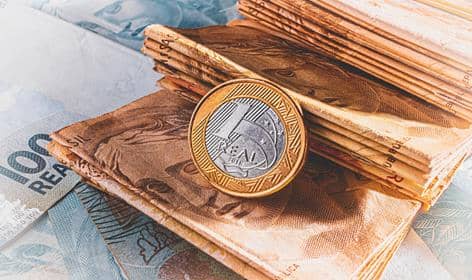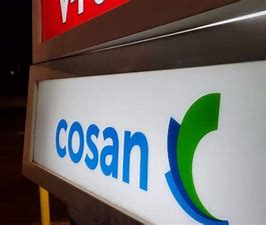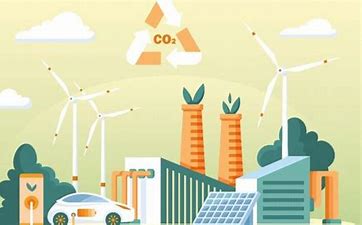Group invests R$700m to produce purer steel, reduce costs and emit less CO2
10/10/2022

To modernize its technology, obtain productivity gains, and be in line with the new demands for steel with the quality required by the electric mobility industry, Gerdau is setting in motion a R$700 million investment in its Specialty Steel unit in Pindamonhangaba (state of São Paulo).
The specialty steel, unlike the long carbon steel used in construction, has as its main destination the automotive market – in Brazil, the largest share goes to heavy vehicles (trucks and buses). But it also supplies light vehicles. This market represents 80% of sales, via auto parts, auto parts manufacturers, and assemblers. The remainder 20% goes to industrial applications and wind power.
With the investment, the company installed new steel production equipment, whose essential raw material is specialty steel scrap coming both from end-of-life material and from generating sources (leftovers from customers’ industrial lines and others).
“The company is preparing and bringing forward, the new scenario in the automotive industry, with hybrid and electric vehicles. We cannot let a steel shortage happen,” says Rubens Pereira, vice president of Gerdau’s Specialty Steel division in Brazil. Furthermore, automakers are beginning to seek local or regional sources for parts supply, in order to avoid problems such as the lack of chips.
The investment includes the construction of a new building and the installation of state-of-the-art equipment, with a high level of automation, for the production of billets and blocks. “We are now making a much purer steel [clean steel] which, in addition to lower costs and higher productivity, has lower carbon emissions,” says Mr. Pereira.
“At Gerdau, we are following the evolution of demand and the technological transformation of the automotive segment. In recent years, the company has undergone a profound cultural and digital transformation, which has made it even more people-focused, digital, innovative, diverse, and inclusive,” says Gustavo Werneck, Gerdau’s CEO.
With these investments – in Pindamonhangaba, Mogi das Cruzes (state of São Paulo), and Charqueadas (Rio Grande do Sul) – the group is modernizing its specialty steel facilities in Brazil, in a R$1 billion package. Other investments will come in the next two to three years, concluding the program in 2025. Pindamonhangaba’s technological upgrade is aligned with the future perspectives of increasing the mix of electric and hybrid vehicles in Brazil, highlights Mr. Pereira.
Mr. Pereira, an electronic engineer with a degree from ITA (Aeronautics Institute of Technology) and an MBA from MIT (Massachusetts Institute of Technology), came to Gerdau two years ago. He built part of his career in consulting firms (Booz Allen and BCG). After that, he spent 14 years at Cargill and two at BRF.
The Pindamonhangaba unit, which was founded by Aços Villares several decades ago, now has a crude steel capacity of 700,000 tonnes per year, employing 2,300 people. This investment, says the executive, reinforces Gerdau’s presence in its markets, with an optimistic vision for the country’s automotive sector. “In the medium and long term, the sector will recover its production levels recovered.”
The Specialty Steel division accounts for about 15% of Gerdau’s total revenues. In the first semester, sales of 843,000 tonnes generated revenues of R$6.87 billion, adding the operations in Brazil and the United States together. The business, in Brazil, represents almost 50% of the division. The U.S. operations, which also have three steel factories, account for a little over 50%.
According to Mr. Pereira, from 15% to 20% of the production in the three Brazilian factories is exported, mainly to Argentina (half of the shipments), where important automotive clients are located. The other part goes to the U.S., Mexico, and Europe.
*By Ivo Ribeiro — São Paulo
Source: Valor International



/i.s3.glbimg.com/v1/AUTH_37554604729d4b2f9f3eb9ad8a691345/internal_photos/bs/2022/e/j/yh8gfTThCWtxYUTUhVjg/10emp-100-cosan-b6-img01.jpg)
/i.s3.glbimg.com/v1/AUTH_37554604729d4b2f9f3eb9ad8a691345/internal_photos/bs/2022/Q/D/q60cSlT1a2SzPofQngSA/predio-da-caixa-economica-federal-170120182637.jpg)
/i.s3.glbimg.com/v1/AUTH_37554604729d4b2f9f3eb9ad8a691345/internal_photos/bs/2021/t/V/EAgbLWRC2l0AW2aJWiSA/sergio-ribas-irani-divulgacao.jpg)

/i.s3.glbimg.com/v1/AUTH_37554604729d4b2f9f3eb9ad8a691345/internal_photos/bs/2022/B/X/iLPGUdS2GrhyQ3bgLCPg/dsc5829-20copy.jpg)

/i.s3.glbimg.com/v1/AUTH_37554604729d4b2f9f3eb9ad8a691345/internal_photos/bs/2022/y/9/78htdfQiOgbC74sQgVyQ/06agr-100-granizo-b7-img01.jpg)
/i.s3.glbimg.com/v1/AUTH_37554604729d4b2f9f3eb9ad8a691345/internal_photos/bs/2022/o/v/eFaAtsTraA6zBJA5BBAA/100119ibre17.jpg)